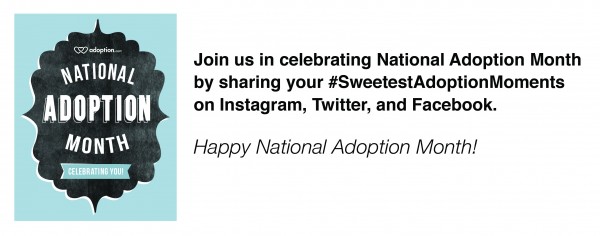Coping with a Failed Adoption
I can still remember every detail of the night we experienced our first failed adoption.
It was a hot, clear, summer night. I was sitting in my car in the parking lot at work, as my shift had just ended. My husband and I hadn’t heard from the expectant mother in a few days and somehow I knew things were not right. So when our adoption attorney called to say that our hopeful adoption situation had come to an end, I wasn’t too surprised. However, I was still in shock.
I had tried to tell myself that I was just being paranoid and that everything was going to be fine. Up until that point, everything seemed to be going so well. We had a great relationship with the expectant mother. We had talked regularly and had recently gone to her state to visit her.
Most people just assumed we would dust ourselves off and try again. Unfortunately, it’s not that easy. It was so hard not to feel angry at people who seemed to shrug off our heavy heartache as if it wasn’t that big of a deal.
I drove home in silence and then broke the devastating news to my husband and our children. It didn’t feel real. I was numb. That night, I couldn’t even cry; on the second night, both my husband and I lay in bed and sobbed. We felt like someone we loved had died.
We felt so alone in our grief. We weren’t even sure that we were allowed to call it grief. It felt selfish to cry over a baby that belonged to someone else. What were we supposed to do? How were we supposed to act? We felt so lost.
On the same hand, the people around us didn’t know what to say or what to do either. Unless you have experienced it, it is difficult to understand the depths of emotion that come with a failed adoption. Most people just assumed we would dust ourselves off and try again. Unfortunately, it’s not that easy. It was so hard not to feel angry at people who seemed to shrug off our heavy heartache as if it wasn’t that big of a deal.
I remember the one response that struck a deep nerve. It was a simple, “Bummer.” It felt so trite and dismissive compared to the broken pieces of my heart that were rattling around in my chest.
So, what do you do when you find yourself experiencing a failed adoption?
- Don’t be afraid to grieve. Let the emotions and the cycles associated with grief come, because the reality is, they WILL come whether you like it or not. Giving yourself permission to experience those emotions will help you work through them in a healthier way. Take time off of work. Get away for a weekend. Binge on Netflix and chocolate. Realize that your feelings are deep and valid. It’s okay to feel broken for a while.
- Be willing to reach out. Let trusted friends and family know that you are hurting. Express your emotions to someone who will listen and cry with you. If you don’t feel like you have people in your life who will understand, there are many amazing online adoption support groups full of adoptive parents who have been there. Finding others who know how you feel can be a huge source of comfort. It’s nice to know you are not alone.
- Don’t forget that while you are struggling, so is a sweet expectant mother. If it’s appropriate, it can be very healing to reach out to her. Letting her know that you still love her, pray for her, and support her can be a tender experience for you both. Chances are, you’ve developed a relationship with her over the time she was making an adoption plan. If you can, let her know you are still her friend.
- Give it time. Don’t feel like you need to jump back into the pool right away. Let yourself take a break from the adoption world for a while. Rest. Regroup. Reevaluate. Recharge.
- Take the opportunity to count your blessings. In the moment, it might feel like there aren’t any. But sitting down to list the good things in your life is a great way to get yourself out of an emotional funk. There is usually a silver lining to be found.
Remember, every step, every stumble, and every tear is getting you closer to the right situation. One day, you will be rocking the most wanted, loved, and cherished child in your arms. You will be completely amazed that he’s even real; and you will look into his eyes and know that it was all worth it.
Have you experienced a failed adoption? What helped you work through it?









